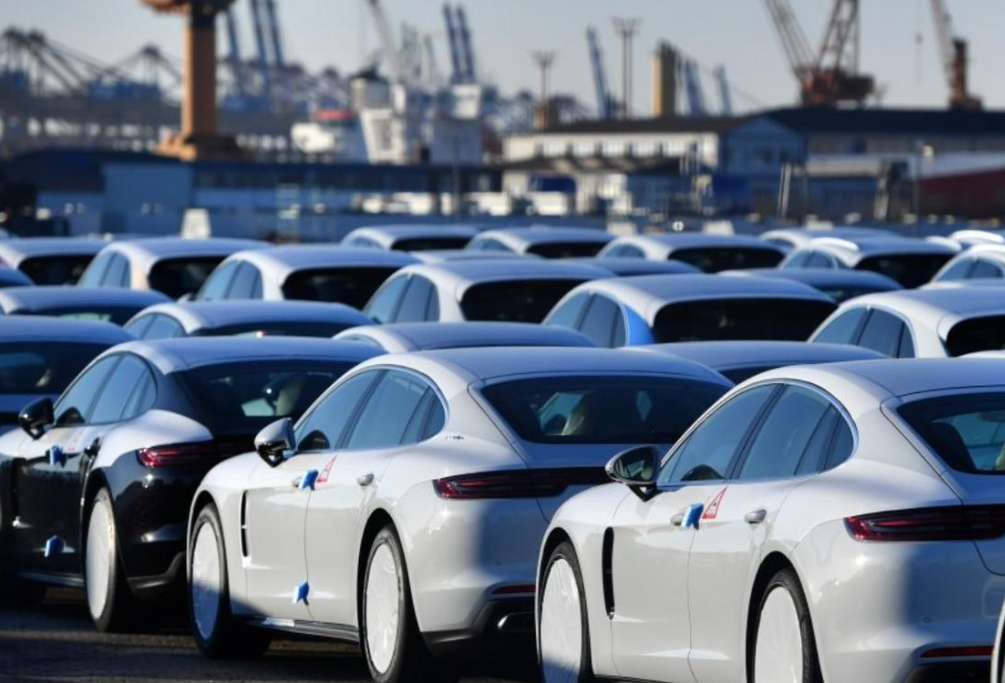BYD Outsales Tesla Across Key European Nations
Advertisements
In recent months, the electric vehicle market has experienced a remarkable shift, particularly in Europe, where BYD (Build Your Dreams) has surpassed Tesla in sales across several key countries. This development highlights a broader trend of increasing competition within the EV sector as companies adapt to changing consumer demands and market dynamics.
In January alone, BYD achieved astounding year-on-year sales growth in markets like the UK, Spain, and Portugal, with increases of 551%, 734%, and 207%, respectively. In stark contrast, Tesla's performance in these markets saw significant declines, with sales dropping by 8%, 76%, and 29%. The data indicates a critical inflection point for market leaders, shaking Tesla's long-held dominance in these territories.
The drop in Tesla's sales can be attributed to the increasingly competitive landscape in Europe. Traditional automotive giants like Volkswagen and Mercedes-Benz are ramping up their electric vehicle offerings, making significant inroads into a market that Tesla once firmly controlled. Emerging companies and tech firms are also venturing into the EV space, saturating the market with new options for consumers. Analysts note that since the launch of the Model Y in 2020, Tesla has not introduced any new mainstream models, which may have contributed to its declining sales figures.
According to Tesla’s fourth-quarter report, the Model Y remains a top seller in markets like Denmark, Norway, and Sweden. Additionally, Tesla has been the best-selling brand in Norway for four consecutive years, a testament to its earlier successes in the region. However, as the company releases reports indicating total global deliveries of 1.789 million vehicles in 2024, a slight decline from previous figures, it raises concerns about Tesla's future trajectory, particularly in competitive markets.

Adding complexity to Tesla's situation, brokerage firms have noted that in key markets like Germany, France, and Belgium, Tesla has seen a 60% decline in sales in Germany, and similarly drastic drops in France and Belgium. In sharp contrast, BYD is maintaining momentum, achieving significant growth in these same regions.
Scattered amidst these figures is BYD’s ambitious drive to expand its international footprint. As of January 8, BYD's electric vehicles are now available in 100 countries worldwide, with international shipments reportedly up by 83% year on year. This robust export strategy is accompanied by notable increases in production facilities in countries like Brazil, Uzbekistan, Hungary, Turkey, and Indonesia, suggesting a methodical approach to scaling their global presence.
This rapid expansion has not come without strategic marketing efforts. Promotions launched in January have been instrumental in securing a larger share of the market, allowing BYD to consolidate its gains. The company reported a total of 4.2721 million electric vehicles sold in 2024, marking a substantial increase of 41.26% from the previous year.
Brazil has emerged as a significant market for BYD, positioning itself among the top ten brands in national sales. Meanwhile, Southeast Asia is proving equally fruitful for BYD, clinching the title of the best-selling automotive brand in Singapore for 2024, a noteworthy achievement that demonstrates the brand's adaptability to different markets.
As for predictions, investment analysts anticipate that BYD’s overseas strategy will yield historical opportunities, forecasting sales figures to rise dramatically from 420,000 units in 2024 to 1 million by 2026. This trajectory aligns with BYD's plan to localize production and reduce logistical challenges associated with international sales.
BYD is not only pushing boundaries in sales but also revolutionizing the concept of smart driving in the electric vehicle industry. In a groundbreaking announcement made on February 10, Chairman Wang Chuanfu introduced an advanced driving system called "Heavenly Eye," designed to be integrated across all models. This strategic move solidifies BYD's position as a spearhead of the intelligent driving revolution.
The swift advancement in smart driving technology brings forth a new era in automotive competition. With BYD leading the charge, traditional automakers and emerging competitors alike are being pushed to reevaluate their technological advancements and offerings. Analysts argue that BYD's pricing strategy could accelerate the adoption of smart driving technologies, encouraging fuel-driven vehicle users to transition into the realm of electric vehicles.
A notable impact of BYD's focus on intelligent driving is seen in the stock market, where shares of various electric vehicle companies have plummeted following BYD's announcement. Notably, companies like Celis, Li Auto, and Xpeng saw their stocks drop significantly, echoing the apprehension of their potential competency against BYD's innovative leap.
As the automotive industry pivots towards more advanced technologies, the stakes have never been higher. The arrival of high-level autonomous driving in mid-range priced vehicles signals a shift that may render traditional automotive features like seatbelts and airbags universal requirements within the next few years. This raises questions about the future relevance of brands that fail to integrate smart technology effectively.
In summary, the rising momentum of BYD's international sales efforts, coupled with its aggressive advancements in smart driving technology, not only marks a turning point for the company but poses significant challenges for established players like Tesla. As consumer behavior and expectations evolve, those automakers that adapt swiftly will thrive, while those that remain stagnant risk becoming obsolete in an increasingly electrified and automated market.